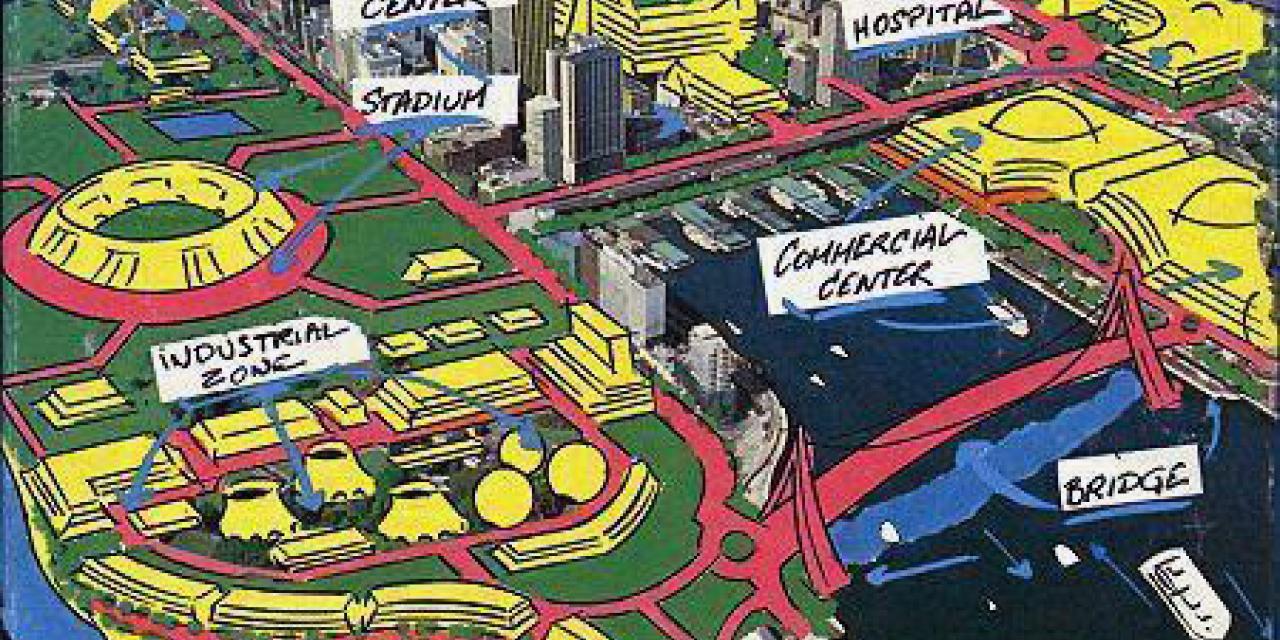
Today Electronic Arts announced the company will donate the original SimCity to each computer in the One Laptop per Child (OLPC) initiative.
OLPC is a not-for-profit humanitarian effort to design, manufacture and distribute inexpensive laptops with the goal of giving every child in the world access to modern education.
SimCity was released in 1989 and is credited for giving rise to the city-building game genre.
"By gifting SimCity onto each OLPC laptop, EA is providing users with an entertaining way to engage with computers as well as help develop decision-making skills while honing creativity, EA said in their official press release. "This is the first time a major video game publisher has gifted a game to the world."
In SimCity, the player takes on the role of mayor of a new municipality - responsible for building and maintaining a place where citizens can work and live happily. Doing so requires laying out essentials such as housing, transport links, schools, factories and shops. The job also requires an ability to choose wisely - for example, some power sources pollute, while others do not but are more expensive. Players must also be financially savvy - raising taxes enough to guarantee an income that can be allocated to public services such as policing and road repair, but not so high that business growth is hampered or that citizens revolt. The mayor must always be prepared for emergency situations as well, as earthquakes, floods and fires can wreak havoc on the town and require an immediate response so that fallout can be contained.
OLPC will begin distributing laptops in countries such as Uruguay, Peru, Mexico, Ethiopia, Rwanda, Haiti, Cambodia and India by the end of 2007. The idea to connect SimCity with OLPC came from internet pioneer, activist and OLPC advisor John Gilmore.
Not long after its 1989 winning more than 24 domestic and international release, SimCity became a phenomenon, winning more than 24 domestic and international awards. The game soon made its way into more than 10,000 classrooms as an educational tool and became part of the annual Future City Competition, a contest that still runs in seventh and eighth grade classrooms today.
"SimCity is entertainment that's unintentionally educational. Players learn to use limited resources to build and customize their cities. There are choices and consequences, but in the end, it's a creativity tool that's only limited by the player's imagination," said Steve Seabolt, vice president of global brand development, The Sims Label. "The game should prove to be an incredibly effective way of making the laptop relevant, engaging, and fun, particularly for first time players. We are thrilled to be making this contribution to OLPC to help meet their goal of educating the children of the world."
The SimCity franchise is one of the most popular PC gaming franchises in history, having sold more than 18 million games worldwide to date since the SimCity launch in 1989. Subsequent base game releases include SimCity 2000 (1993), SimCity 3000 (1999) and SimCity 4 (2003). The fifth installment of the series, SimCity Societies, which allows players to construct not only the cities they desire, but to create their cultures and societal behaviors as well is being published by Electronic Arts and developed by Tilted Mill Entertainment for release across North America and Europe in November 2007.
